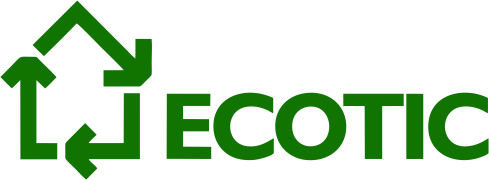Dragos Calugaru, General Manager of ECOTIC, explains the impact of the GO project for the change of EGO 196/2005 on the EEE / WEEE and battery / battery waste market, following the public debate that took place on March 4th 2016.
“In ECOTIC's opinion, law enforcement is necessary in every aspect t of the WEEE / battery waste field. The current situation, marked by insufficient control measures, allows for the existence of irresponsible transfer organizations and “treatment” operators that seem to have come from a different century, not to mention the issuing of fictitious reports. In the case of producers, too, assuming responsibility is more like a voluntary act and in many cases the system is being tricked and correct producers face bad competition.
t of the WEEE / battery waste field. The current situation, marked by insufficient control measures, allows for the existence of irresponsible transfer organizations and “treatment” operators that seem to have come from a different century, not to mention the issuing of fictitious reports. In the case of producers, too, assuming responsibility is more like a voluntary act and in many cases the system is being tricked and correct producers face bad competition.
In order to align waste management to the level of European standards we need a dramatic change, and this normative act is one of the necessary means.
Therefore, we underline what we consider the positive aspects of this project:
- Imposing a final storage tax (landfill tax) will translate into the stimulation of selective collection, in the case of both the local authorities and the citizens who will otherwise pay more for their waste. An increased level of separate waste collection will certainly have a positive impact of the WEEE / battery waste collection, at least by generating changes in the public's behavior.
- The Environment Fund Administration's control in the WEEE / battery waste system will translate into sorting both the transfer organizations which have different agendas and the operators (there are 800 collection operators and 80 treatment operators of WEEE). We hope that fictitious reporting will become history.
- Penalties on failed targets by transfer organizations would start in 2019, thus giving us all some time to develop an adequate collection system. I wish to underline the fact that if authorities do not take some action on WEEE leakage, our national results will continue to be poor.
On the other hand, there are some aspects that could generate more discrepancies if left as written at this point; this will surely not help in reaching the legislative goal of meeting collection targets:
- Penalties of 6 lei / kg of WEEE failed target can shut a transfer organization down even if it reached 90% of its target. We propose the set-up of performance thresholds and differentiated penalties - from 0.5 lei / kg for performances of over 90% to 6 lei / kg for performances under 50%; we also support a maximum penalty threshold of 10% of the turnover.
- There is a gray zone of products being considered EEE or not. We have examples of products with an uncertain status: central heating on gas, safe deposit boxes with electric lock-down, hydro-bathtub, circulation pumps inside a heating circuit and others. Or if a producer considers that its products are not EEEs, for the lack of clear guidance from authorities and then the EFA calls for the contrary, the producer faces a major negative impact that could shut its business down. That is why it is of major importance to clarify this area.
- The monthly reports on marketed EEEs and batteries to be submitted to the EFA will be a difficult and bureaucratic process. It is true that reports on packaging to Intrastat have the same frequency; still, these monthly reports will make activity harder for producers who will feel suffocated by larger demands form more and more institutions. One annual report is enough; there are other methods to check on system cheats.
- Another difficult aspect is the closing of situations on previous years up to January 25th; current deadlines are March 20th for EEE and February 28th for batteries and accumulators. We believe current deadlines should be maintained as such since there are a lot of particular situations that need time and effort to clarify.
We conclude that, if the final form will integrate relevant aspects generated by the public debate which concur with the directive's scope and spirit, the situation will evolve towards a well-needed normality.
We wish to reinforce our belief that, no matter how harsh the measures imposed on producers, if authorities will not act on WEEE leakage prevention and on the need to cooperate with local authorities for ensuring a public service for WEEE collection from people, national targets will not be reached and penalties will generate shut-downs and unemployment. "
Dear Monk
General Manager of ECOTIC
